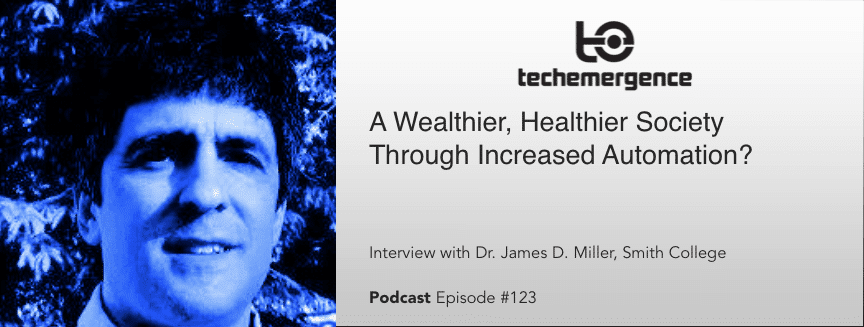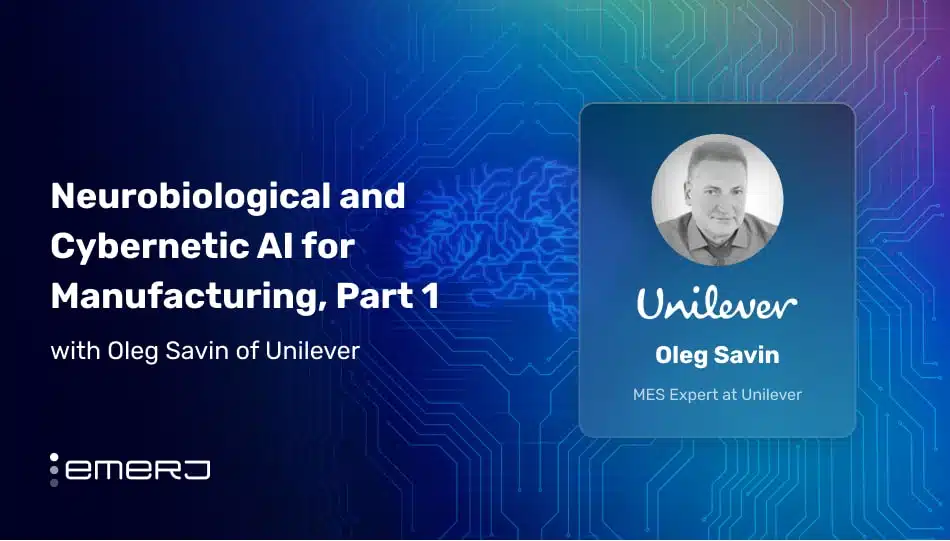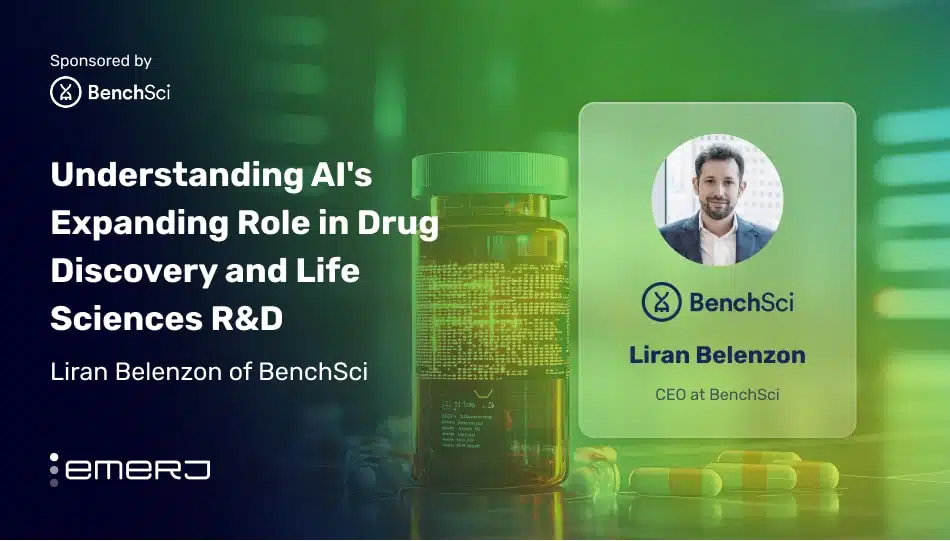Episode Summary: Dr. James D. Miller, an Economics and AI researcher who received his doctorate from the University of Chicago, sheds light on how economics factors into our increasingly automated world, where development is growing exponentially. We discuss how this acceleration may (or may not) help materialize the “Singularity”, the theorized point at which society is so drastically revolutionized by technologies that we never return to our past ways of life.
Guest: James D. Miller
Expertise: Economics and Artificial Intelligence
Recognition in Brief: Dr. James D. Miller is a professor of Economics at Smith College and author of the 2012-published book, Singularity Rising. He has also published the books Game Theory at Work and Principles of Microeconomics. Miller has published academic articles in the areas of economics and artificial intelligence, and has given numerous podcast interviews on the topic of the singularity. He has also made several TV and radio show appearances, including The O’Reilly Factor and NPR, to discuss topics ranging from political strategy to academic freedom.
Current Affiliations: Smith College
What’s in the Singularity for Us?
The singularity isn’t with us just yet, and this sometimes makes for mixed views and disagreements about what the singularity really is and means.
Dr. James Miller defines it as the “period of time at which an increase in human or machine intelligence radically changes civilization”; and, he adds, “maybe it brings utopia, maybe it destroys us”.
There are, technically, many possible singularities. The economics principles that applied during the industrial revolution may be the same ones that drive us through technology policy and economics now and in the future towards a brand of the singularity. Those policies, identified by Adam Smith, can be summed up in a grand nut shell i.e. that companies try to satisfy consumer needs in order to gain profit.
The Driving Economic Principles
If Company A can make a better, cheap product or service that Company B, then Company A will earn more profit, gain resources, and advance in the marketplace. If Google comes up with a better search engine, they’ll earn a higher profit. If a company can come up with robots that can build things cheaper than humans, they’ll gain market share (this is already happening in the fast food market, as one example).
In Miller’s opinion, the examples of technology progress that we have today are “kind of mundane”. Yes, we have iPhones, and yes, they have faster computer chips than before, simply because the money we spend on electronic gadgets propels Intel to develop faster computer chips. Why not more investment in AI technologies that are as smart as humans? We’re starting to see progress in that area through newer companies like Google and Facebook.
Slower Does Not (Necessarily) Equal Safer
With this in mind, what are the questions around policy that we should be asking regarding business building and and potential monopolizing? Does the potential risk or reward of a singularity-like event make a safer, more tentative economic policy? Is it worthwhile to choose and implement “rules of the game board” as we move forward to ensure our safety – and would that even be feasible?
James thinks the questions and directions you take all depends on whether you think the singularity is going to be great or awful. If you’re in the “great camp”, then speeding up investment is the answer (and, he remarks, one of the best ways to bring this around is for government to lower taxes on businesses). If, however, you fall in the “awful camp”, then the answer might be to slow down technological development.
The latter is much harder in an international arena. If the U.S decides it doesn’t want to develop faster chips, for example, then another country (like China) will do it instead. “This makes it much harder to slow down the technological sector…the absence of laws apply more to our world than Smith’s, because so much more is connected to the global economy,” Miller remarks.
Miller thinks that for the time being, the best policy is to invest more capital AI safety, more resources in seeing that developing smarter computers is done with eyes in all directions. This is something that Elon Musk has already made visible with his recent investment in safe and beneficial AI.
A lot can go wrong than just developing unfriendly AI; going slow with computer development is not necessarily the safe route, even if the nation decides it wants to take the slower, more cautious route.
Speaking in long-term trends, Miller discusses the changing pattern in the labor market, over the past 50 years, of increasing value to being highly skilled and the decreasing value on being solely a strong and hard worker. “The advantage to being really smart keeps going up, and the disadvantage of not goes down,” says James.
It seems unlikely that this trend will continue in all sectors, as it’s possible for AI to be built that are great at certain forms of skilled writing; however, it’s easier to automate non-skilled jobs, suggests Miller. “The key mistake people make is thinking no work is a bad thing for people,” says James, who believes the having the choice of occupation or even to work would be a great outcome for society.
But would the “choice to work” appear beneficial in the shorter term? As Miller suggested, some would view being without a job as far from utopia. James explains that the no-work-all-play scenario is not necessarily an inevitable situation. If robots start doing much of the manual work humans that humans do, but doing it for far cheaper, then consumers will hypothetically have more money to spend, which will create more jobs.
James alludes to the “broken window fallacy” i.e. a person sees the broken window as leading to more opportunities for work. But Miller explains that this is an illusion. The money spent on fixing the window came from somewhere; maybe the homeowner opted not to eat out at a restaurant.
“The world is getting a lot richer, especially if you look at the quality of goods and consumption,” says James. Plus, with the age of the IoT, humans with access have great, free entertainment through sites such as Wikipedia and Youtube, and this trend in convenience, quality and wealth of experience is likely to continues, says Miller.



















